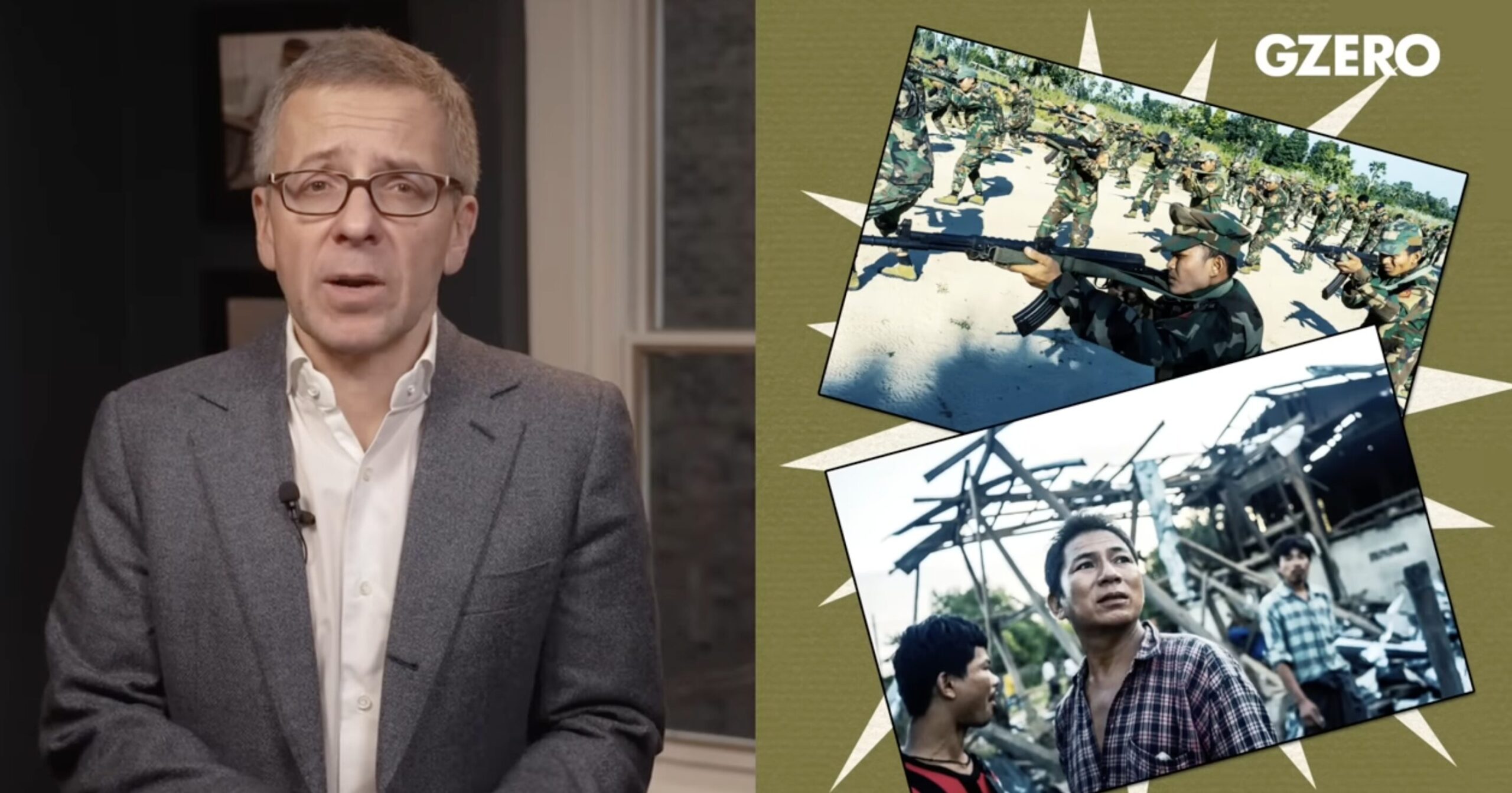
Peter Zeihan: Europe Goes Nuclear
We’ve got two major developments in Eurasia. We’re talking about Ukraine disabling two ships in the Caspian Sea and Poland getting EU approval to build…
Thought Leader: Peter Zeihan

Dinnertime in our kitchen tent. It’s week five of our K2 expedition to summit the hardest mountain on the planet. Early tomorrow morning, after weeks of acclimating and waiting for a weather window, we are scheduled to start our 5-day summit bid of the Savage Mountain.
Anyone would feel tense in this situation. But this time, we’re even more nervous than usual. A developing search and rescue operation is happening on the neighboring mountain: One sherpa has died, a young woman is missing, and another climber fell into the abyss and is getting weak by the second.
I can hear conversations on the radio while we eat—teams scrambling to find volunteers willing to risk their lives to go up and help a fellow mountaineer. I look at the wall of this mountain from the comfort of my kitchen tent, and I am mesmerized by the lights from the headlamps. The mountain looks so peaceful, but one of the headlamps belongs to a man who is soon to die. You never know, it could be me next.
We start our K2 summit attempt in the morning. Into the unknown…
You don’t need to be a mountaineer to be familiar with uncertainty. We all deal with it in our professional and personal lives, especially during these times of pandemics, wars, economic turmoil, and a never-ending negative news cycle.
It’s human nature to dislike uncertainty—and actually prefer something bad (but certain) to happen. Case in point: a 2016 University of London study1 published in Nature found participants displayed less stress when they knew a bad outcome was coming (in this case, an electric shock) than when they were uncertain whether or not the shock would come. In test after test, the researchers found that any element of unpredictability significantly increased people’s discomfort.
The higher the uncertainty, the more energy our brain spends trying to resolve it2, and thus the more stress we feel.
Another study on uncertainty found that when securities traders were under stress, their thinking tended to become slow and impaired. The more urgent the response needed, the greater the impairment.
When we face the unknown, we become more risk-averse and slower in taking action. This is not sustainable. Clearly, we need to develop healthier ways of dealing with uncertainty and managing our discomfort around it.
In my experience climbing some of the world’s most treacherous mountains, I’ve learned that there are two ways to manage fear of the unknown: By taking effective action and managing perception of the situation.
To take effective action in the face of the unknown, you need to stay focused. Forget about the outside factors; don’t think about what’s behind or ahead. Focus on that fire inside of you and do your best when you take your next step. Only your goals matter. Everything else is irrelevant.
To manage uncertainty through perception, you need to treat all events in your life as circumstances. There is no need to assign any negative or positive connotations to our stories. Even failure is a matter of perception, because all moments are neutral.
Here are a few more actionable ways that I try to stay strong through uncertain times:
Success is the art of small steps. I know that because on every mountain, when the going gets tough, and the oxygen gets thinner, I can make a choice to turn around. But I also know that my goal—the summit in front of me—is reachable only if I keep going. Keep climbing.
Peter Zeihan: Europe Goes Nuclear
We’ve got two major developments in Eurasia. We’re talking about Ukraine disabling two ships in the Caspian Sea and Poland getting EU approval to build…
Thought Leader: Peter Zeihan
Dr. Sanjay Gupta’s Top Health Stories of 2025
From the resurgence of measles to a new way to treat pain, 2025 was a challenge for public health while still offering moments of hope. Sanjay…
Thought Leader: Sanjay Gupta
Ian Bremmer: The state of global conflict in 2025
On GZERO World, Ian Bremmer takes a hard look at the biggest global crises and conflicts that defined our world in 2025 with CNN’s Clarissa…
Thought Leader: Ian Bremmer

